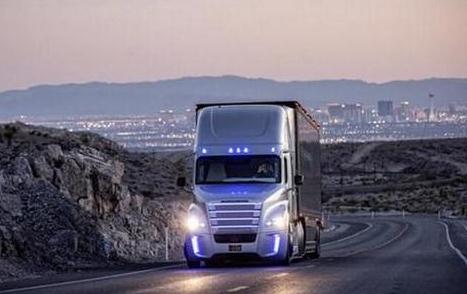Bulk of varicella vaccine,semi-finished products.It has good safety with low ratio in adverse reaction. And it has been exported to Bangladesh.
In 2008, BCHT successfully launched its product Varicella Vaccine, Live in China. In the following years, BCHT continuously committed to improving the product and led in 2010 removal of gelatin from adjuvant and extended the vaccine shelf-life up to 36 months which is the longest one in the world in 2011. And it has the following qualities.
Rabies Vaccine,Freeze-Dried Rabies Vaccine,Mild Rabies Vaccine,Stable Rabies Vaccine For Human Use Changchun BCHT Biotechnology Co. , https://www.ccbcht.net
Autopilot technology has now become a frontier for many car companies and technology companies to compete for. Tesla said that the company expects to launch true autopilot technology in 2018, and the famous car company Uber stated that it has launched Uber in Pittsburgh. Self-driving car service. At the same time, there are many other car companies that plan to launch their own autonomous vehicles around 2020. 
But what many people don't realize is that trucks with full autopilot seem to come to us faster than autopilot home models. This is mainly due to the fact that autopilot systems are designed for high speed roads compared to complex urban roads. It's a lot easier. On the highway, there may be fewer elements that can cause trouble for self-driving vehicles, but cities including sidewalks, vehicles, road signs, etc. will cause immense trouble for the design of the autopilot system.
In this regard, we have seen many similar examples in the real world. For example, Uber's self-driving model requires that a human driver must be sitting in the driver's seat and ready to take over. And in the actual driving experience, we also witnessed the human driver taking over the vehicle several times to overcome the complex state of the road in the city.
Fortunately, we have seen a number of models with automatic driving capabilities at high speeds today. In Tesla’s case, the company’s models have the ability to automatically merge on the freeway, detect the presence of other vehicles into the current lane and exit the high-speed exit. In addition, Volvo has also equipped its Volvo XC90 with automatic driving assistance. The model now has the ability to autopilot on the highway (ie, the vehicle can be on the expressway with clear lane markings, at speeds no higher than 130 km/h. Autopilot and steering.)
Of course, this does not mean that today's vehicles are fully capable of high-speed driving. August Otto, a self-driving truck start-up company Uber bought for $680 million, also required human drivers to sit in the driver's seat to prevent any high-speed accidents from happening.
BI editor BizCarson once had the opportunity to test the Otta self-driving truck. He said that Otto was able to drive autonomously on the freeway most of the time, making people feel very relaxed, cozy and even It feels completely unnecessary to have a human driver.
What is the significance <br> <br> course, this is compared with the high-speed urban road traffic easier closely related, but economic factors hidden behind equally deserving of attention.
TheCenterforTechnologyInnovation of the Brookings Institution said in a research report that because e-commerce continues to be hot, courier services and trucks may embrace autopilot technology faster than other companies and models. Today's people are more and more accustomed to ordering food and goods on the Internet, and they all want to enjoy the delivery service on the same day, which promotes the rapid development of express delivery and truck transportation industries. In addition, taking into account the fact that today's large trucks are priced at almost $150,000, the extra costs associated with autonomous driving technologies such as cameras and sensors are almost nothing to mention.
What's more, the large amount of cost savings that autopilot technology brings to companies and teams in the long term has also made this technology area more and more concerned by the outside world.
In addition to Otto, the old German car company Daimler is also developing full-automated truck driving technology. Daimler's Mercedes-Benz brand of unmanned trucks has been tested on the road for 15 years. According to sources, the company’s plan is to put it into practical use by 2020.
However, this Mercedes-Benz driverless truck is not the first attempt in the world to test unmanned technology in commercial transportation. Because as early as the spring of 15 years, a driverless car named "Freightliner InspirationTruck" has been road tested in Nevada, the United States, which uses a driving system called "freeway pilot" ( HighwayPilot). As the name implies, the system's autopilot module can be activated automatically when the truck enters the freeway.
At the same time, Deutsche Bank once stated in a report released in June this year that Amazon will launch a transportation operations team consisting of drones and self-driving trucks in the future. And this project occupies a core position in Amazon's future plans because the company's plan is to automate the matching of warehouses, drones, and self-driving truck systems, leading to a fully automated operating model.
Obviously, there are many driving factors behind today's autopilot technology, such as reducing traffic congestion, protecting the environment and improving traffic safety. However, considering the many challenges that are faced by today's auto-piloting technology, we may see that autopilot trucks first appear on our side.

Why trucks will become the pioneers of autonomous driving technology?
